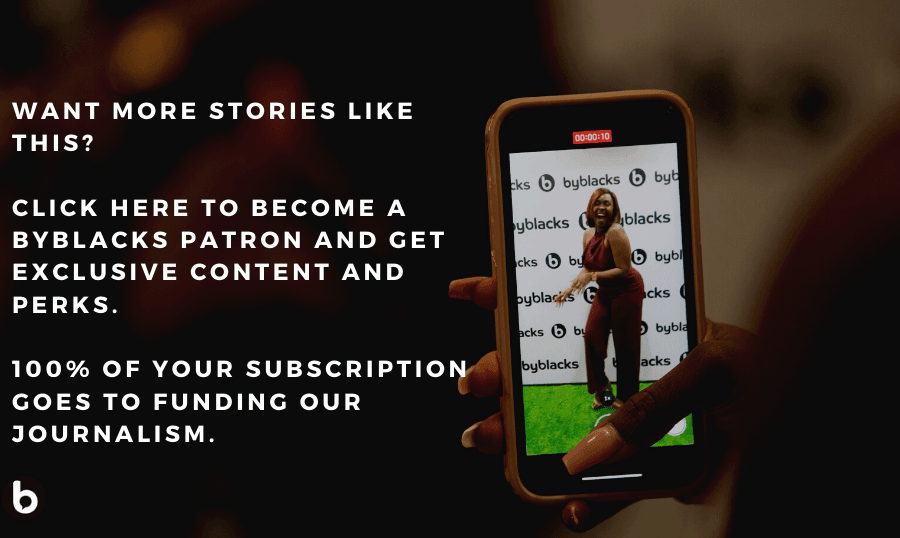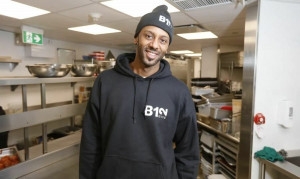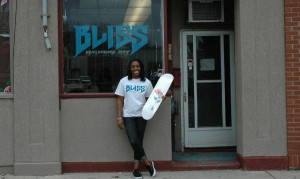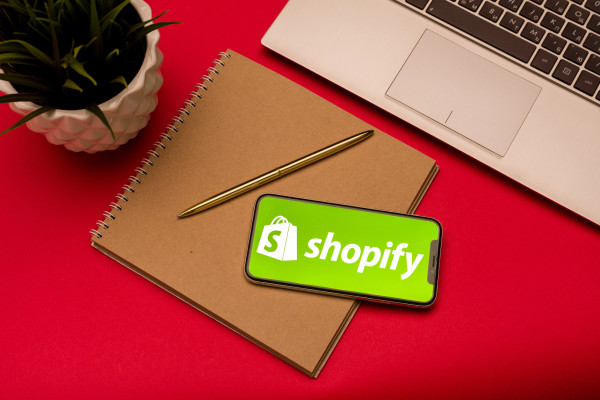Jama is soft-spoken and says that his purpose and approach to building apps is “to make people’s lives better in small and meaningful ways.”
At Tiny Hearts, Jama and his team built products for themselves as well as other companies such as Wealthsimple, Phillips and Shopify. In 2016, Shopify acquired Tiny Hearts, and onboarded its six-person production crew, including Jama. Jama now works at the e-commerce company as a Senior Product Lead, and he's also now an angel investor helping other startups get off the ground. When Jama is curious about something, he obsesses over it; he wants to learn everything about it and is eager to take a hands-on approach, I talked to him about how this curiousity approach led to his success.
How did you go from a BA in psychology at York to building your own digital project studio?
I started running businesses while I was still at York. My friends and I learned about creating a digital product and building a community. The idea for Tiny Hearts was that I’ve always been a fan of starting things based on what I’m naturally curious about. At that time I was obsessing over the iPhone. It was the early days of iPhone and I was loving it. I wanted to not just be a user, I wanted to be a producer and a maker. And so I decided to make apps. And then it was like, I don't want to do one app, I want to do multiple apps so I want to start a studio.
In an article you wrote, you said “if you’re just in it for the money, there are easier ways of achieving that” when talking about apps, so what drives your passion for apps and mobile products?
I like the word curiosity more than passion. And that's something that drives me, being naturally curious. When I'm curious about something, I'm itching to learn more about it. I like doing it or building it or getting my hands dirty. It's a combination of curiosity and the opportunity to be creative. And when I combine curiosity and creativity, that's really when I feel like I'm in the zone. That's the stuff that I get really excited about.
If you have the skills or are able to develop a product, there's an output. And then that output goes out into the world and you can actually put it into people's hands and people can be using that thing that you made. That's always been my vision. Can I make things that are going to make people's lives a little bit better? Can I make things that I want to see in the world but is also going to put a smile on somebody's face. For me, it's always been about my journey, things that make people's lives better.
Growing up, I thought you had to be a doctor to help people then I realized I can actually make products that help people as well. And in that sense, that’s a tertiary benefit because it scales, right? A doctor can only benefit, for the most part, the patients they see and they can only see a certain number of patients. But when you make a digital product that goes out into the world, you don't know who’s using it. Like right now, I probably have millions of people that are touching products that I made and I don’t know it. That’s the type of leverage you can get from making digital projects.
Could you take me through your inspiration for the apps Wake Alarm, Pocket Zoo and Quick Fit?
Pocket Zoo was my first app. The inspiration for the app was the iPhone itself. The fact that the App Store existed was cool and they had a category for kids and education and I wanted to make an app for kids because I was about to become a dad. For me, it's always been about things that l find important at phases of my life, those are the things that I'm curious about. Can I turn this into a product?
So I came across this idea by seeing another app that had general cameras, like live chat. Like you can watch live cameras from your phone, like watch the street in Berlin. But also they had animals. I thought, “That's cool. I love animal ideas. I can make that a whole concept on its own or a better experience.” I had that one idea and then built the whole experience around it. I had illustrators design this virtual zoo, essentially like a zoo map and then add educational content around it and turn it into a zoo in your pocket, which is wired.
Wake Alarm is one of the most popular apps I’ve made. When we took it off the App Store there were probably three or four million downloads. The inspiration for that was myself, again.
I have a hard time waking up in the morning so I wanted to make an unbeatable, unbreakable alarm that really forced you to wake up. I was toying with different ideas like, what if you had to do a math problem to turn it off in the morning? I didn't end up going that route but I did add a mechanic where you had to shake the phone really hard to turn it off and there was an easy, medium, hard and really hard.
We got really creative and we took the proximity sensor, which is the part of your phone that turns off the screen when you're talking with your face right next to it. So we took that and said, “You know what? You could take that and actually make a feature so you could slap your phone to snooze it like an old school alarm clock. We thought, why stop there? You could flip your phone to turn off your alarm. I thought that was really creative and the market did too.
And with Quick Fit, it was partially weight. I was working a lot at this company and wasn't spending a lot of time at the gym. Then I came across high-intensity interval training, and I thought, “this is perfect.” I tried it and it actually worked. People need to do this because technically you have no excuse, you can workout anywhere, anytime, without any equipment. I thought it was a great idea for a fitness app. Instead of just making a seven-minute-video app, let's take the concept of high-intensity interval training and build around that. Again, it was a personal need, scratching my own itch.
How were you able to bring so much attention to Tiny Hearts Studio that Shopify took interest and eventually acquired it? Especially without ever having any prior investors.
Well, I wasn't trying to get Shopify’s attention. I think we built our reputation over six or seven years, I had gotten out into the community and started getting to know people. But also, I've been sharing what I’m doing and doing my work out in the open. We were getting better and our skills were improving to the point where we became one of the best teams in the city. So it was undeniable, people saw the products we were shipping. They saw the consistency, which is essentially how you build a reputation over time. We built that reputation and based on that reputation, some companies would come to us and say, “Can you help us with this?” So I started doing some consulting as well. Shopify, came to us for some consulting and we did some work with them. But I'd also known some folks there from before who had seen my journey from Pocket Zoo. They knew that we were one of the best mobile teams and that was something that they were looking for expertise in.
How have the successes you’ve had changed the way you approach or think about your work?
Well, in the world that I am in there's no guarantee for success. You can’t buy product market fit. And just because you've had it before, doesn't mean you'll get it again and that’s something I stand by. To me, that’s my favourite part. It really comes down to skill, like, how good are you at timing things? How good are you at building teams? And for me, I feel like that's my challenge.
What do you do to overcome obstacles in both your personal and professional life?
I think it's one of those things where it's a part of the process. I think it goes back to your mindset. The way I've been dealing with it is trying to set realistic expectations and being able to just roll with the punches. I love this quote from Mike Tyson, he said, “Everybody has a plan until they get punched in the face.”
You have to be ready for those punches that are going to come. And in this world of business, that's one thing that's guaranteed, challenges and change. And it's a learning opportunity, that's my mindset. It’s like, “thanks for that lesson” then it’s just on to the next.
How can one best prepare themselves to create a successful app even though there’s no guarantee that it’ll be successful?
I think just understanding the foundations and really learning from the best and studying the game, and studying people who are at the top of the game. I think it’s, really, really important. And I think the other one is just building it. If you build enough products, you will get better, you learn more and if you can build on top of those failures, you'll probably get to success. You're learning from each one, right?
Tobi (CEO of Shopify, Tobias Lutke) likes to say “Failure is just the successful discovery of something that didn't work,” which I love. You're just discovering things that don't work and eventually, you'll figure out how to make something work.
The best advice I could give anyone is just do it. Go out there and build the skills and actually do it and don't ask for permission. And just by doing that, you start the journey and starting the journey is when you evolve and grow. And if you don't know what you want to do, okay, that's actually a great position to be in because then it's like you're in exploratory mode. You should be doing a lot of different things, figuring out what you want to do and you should be working with a lot of different people. And if you're younger, work to learn and not to earn and optimize your learning. If you’re interested in something, send an email and see if you can start interning somewhere within that industry. And if you find that it’s not that exciting, that’s okay. You wouldn't have found out if you didn't go inside, right? So just putting yourself in positions where you can get a lot of experience, I think is important to figuring out what you want to do.
Marcus "Roi" Medford is a poet, journalist, photographer's assistant and radio-show host studying journalism at the University of Toronto. Marcus has written for numerous publications including The Blueprint, the Toronto Observer and New Canadian Media. He has performed his poetry at multiple venues in Toronto and is publishing his first collection of poetry, "Book of Mars" later this year. You can check out Marcus on Twitter: @marcus_roi
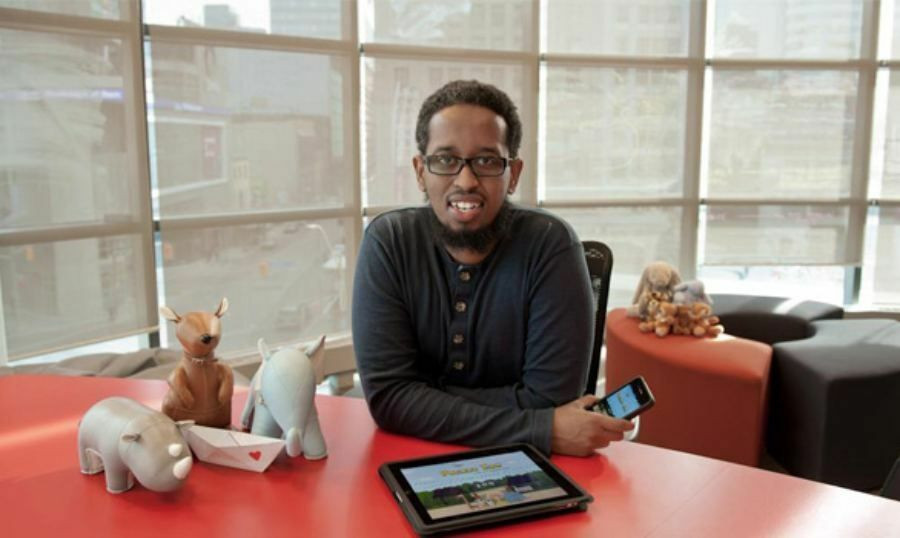
 By
By 